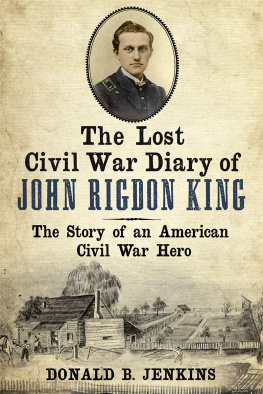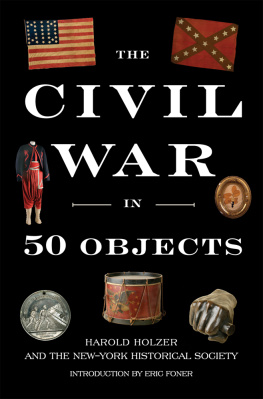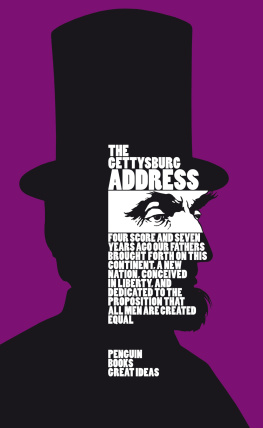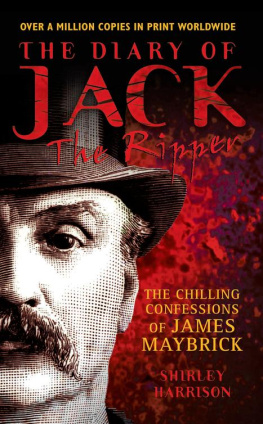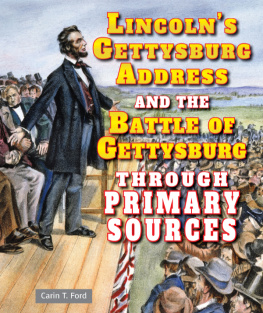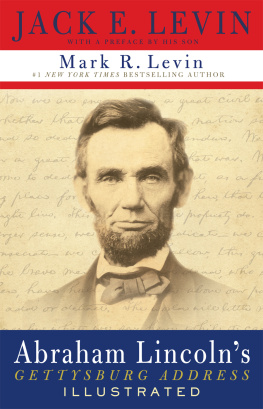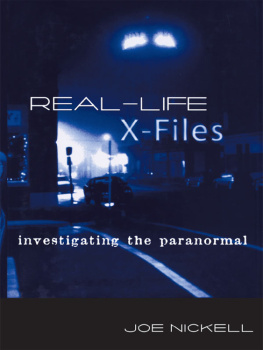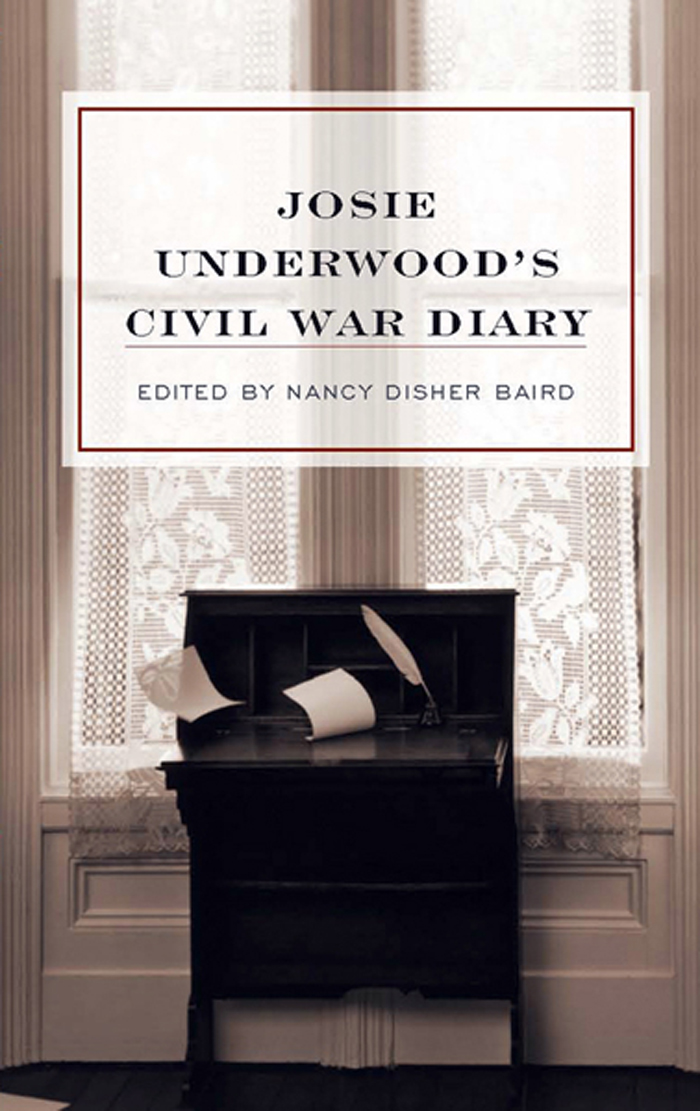Josie Underwoods Civil War Diary
Josie Underwoods Civil War Diary

Edited by Nancy Disher Baird

Foreword by Catherine Coke Shick

Copyright 2009 by Nancy Disher Baird and Catherine Coke Shick
Scholarly publisher for the Commonwealth,
serving Bellarmine University, Berea College, Centre College of Kentucky, Eastern Kentucky University, The Filson Historical Society, Georgetown College, Kentucky Historical Society, Kentucky State University, Morehead State University, Murray State University, Northern Kentucky University, Transylvania University, University of Kentucky, University of Louisville, and Western Kentucky University.
All rights reserved.
Editorial and Sales Offices: The University Press of Kentucky
663 South Limestone Street, Lexington, Kentucky 40508-4008
www.kentuckypress.com
13 12 11 10 09 5 4 3 2 1
Library of Congress Cataloging-in-Publication Data
Underwood, Josie, 1840-1923.
Josie Underwoods Civil War diary / edited by Nancy Disher Baird ; foreword by Catherine Coke Shick.
p. cm.
Includes bibliographical references and index.
ISBN 978-0-8131-2531-2 (hardcover : alk. paper)
1. Underwood, Josie, 18401923Diaries. 2. WomenKentuckyBowling GreenDiaries. 3. Unionists (United States Civil War)KentuckyBowling GreenDiaries. 4. Bowling Green (Ky.)History, Military19th century. 5. Bowling Green (Ky.)Social life and customs19th century. 6. Bowling Green (Ky.)Biography. 7. KentuckyHistoryCivil War, 18611865Personal narratives. 8. United StatesHistoryCivil War, 18611865Personal narratives. I. Baird, Nancy Disher. II. Title.
F459.B7U53 2009
976.97403092dc22 | 2008049856 |
This book is printed on acid-free recycled paper meeting
the requirements of the American National Standard
for Permanence in Paper for Printed Library Materials.

Manufactured in the United States of America.

Member of the Association of American University Presses
For
William Gaston Coke Jr.
Lowell H. Harrison
and
Linda and Howard Surface
Many, many thanks!
CONTENTS
FOREWORD
During the 1960s, I was raised at McCutchen Meadows, a dairy farm just outside of Auburn, Kentucky, which is approximately fifteen miles west of Bowling Green. The farm was a land grant awarded to my great great great great grandfather, John McCutchen, for his service during the War of Independence, when he was a private in Colonel John Gibsons company of the 9th Virginia Regiment and fought at the Battle of Kings Mountain in October 1780. I grew up in this place steeped in history, and consequently, Ive always been interested in the stories of our extended family. My immediate family relocated to Nashville, Tennessee, in 1966, and in the late 1970s I went away to school. My grandfather William Gaston Coke continued to work the dairy farm until his death. Unfortunately, at that time my father decided that maintaining it was too burdensome, and the farm was sold at auction in 1980. Although the Kentucky home of my childhood was no longer in our family, and although I lived and worked elsewhere for many years, my heart and my thoughts were never far from south central Kentucky. Several years ago, I was living in Los Angeles when my son was born. That event rekindled my interest in the histories of my and my husbands families, and I began to work on genealogies of both.
My aunt Esther Coke knew of my interest in the many branches of my family and decided to send me a copy of Josies diary from the Underwood side of my ancestry. It captured my imagination immediately. I was thrilled to read an impassioned first-person account of youthful experiences during the early part of the Civil War, written by a member of my distant family. Her voice was clear, her personality strong, and her chronicle vivid. The immediacy of her writing affected me and drew me into her world. The detail with which she expressed herself made me visualize her surroundings, made me hear the passionate and divergent beliefs of her family and friends, and made me empathize with the personal pains of war and loss. I was struck by the love that she felt for members of her family with whom she completely disagreed and the sincerity of her dueling emotions as events unfolded. It was a Civil War diary like none I had ever read before.
At the time, I believed it was important for the diary to be published for two reasons. One, I hoped that others would have a similar experience in reading the work. And two, I thought that as an historical document, this diary about life in south central Kentucky during the Civil War was unique.
With my husbands assistance, we attempted to trace the long, mysterious journey the diary must have taken over the years. What we knew was that a manually typed, Xeroxed copy of the diary arrived at Christ Episcopal Church in Bowling Green in 1976; it had been sent from the dead letter division of the Atlanta post office. It was sent to Christ Church because there was a copy of Josie Underwood Nazros marriage certificate with the diary. She had married Charles A. Nazro in the church on the 26th of October 1870. Christ Episcopal Church subsequently turned it over to Western Kentucky University because there was a large Underwood collection in their Kentucky Library Manuscript Division. That leg of the journey was indeed unusual, but the larger questions of who typed the diary, where it was sent from, and how it arrived at the dead letter division of the Atlanta post office continue to remain a mystery. There was also the not insignificant issue of the legal ownership of the diary.
As I discussed these issues with my aunt and my father, they revealed that they had been searching for the original handwritten diary off and on for some years. They had searched in other parts of the country where family members had relocated, from New York to California, but the original was never found.
With this information, my husband and I decided that to protect the integrity of the diary we needed to establish ownership of the copyright. Ownership of the copyright is the necessary prerequisite to obtaining the right to publish. If we could not establish the ownership of the copyright, the diary would fall into the public domain, allowing anyone the right to publish all or any part of the diary for their own purposes. We thought it was important that the diary not be altered or disembodied, but that it should be read and appreciated as written, with only contextual, historical information added for clarity. In order to do this, we knew we had to determine the chain of events that the diary took after the death of Josie.
In her last will and testament, entered into the court record in Warren County, Kentucky, in the July 1924 term, Josie Underwood Nazro names her granddaughter, Joanna, as recipient of the diary. Joanna in turn, bequeathed her entire estate to her husband, Joseph Mullen, when she died in September 1963. In 1974, Joseph Mullen left the residue and remainder of his estate, which included the diary, split evenly between Rice University and the Sloan-Kettering Institute for Cancer Research.


